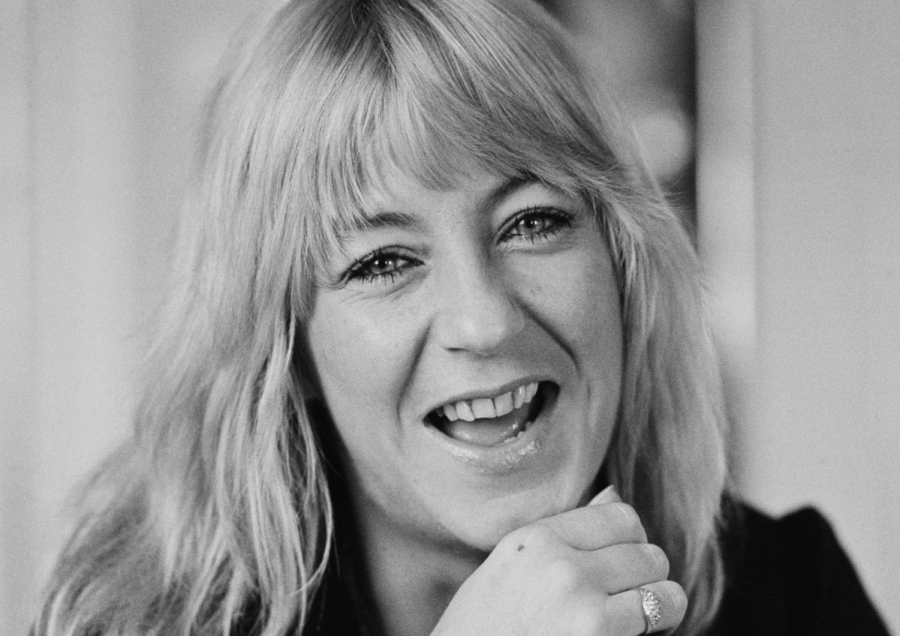When thinking of influential bands of the 1970s, Fleetwood Mac without question comes into the discussion. With hits like, “Dreams” and “Everywhere” reaching newfound heights in recent years on TikTok, the band’s sultry rock sound has begun to inspire today’s generation, just as it inspired their parents decades before.
With a powerhouse vocalist and style icon in Stevie Nicks as frontwoman, it is easy for the fair-weather fan to mistake the undeniable star power of Nicks, Lindsey Buckingham and Mick Fleetwood as the key takeaways of the ensemble. However, with the untimely passing of member Christine McVie on Nov. 30, the undeniable substance and stability McVie brought to Fleetwood Mac has begun to gain widespread acclaim.
Now known as one of Fleetwood Mac’s five core members post-Peter Green, McVie’s formal introduction came in 1970 after marrying the band’s original bassist, John McVie. Quickly thereafter, McVie brought her distinctive songwriting, piano and vocal stylings to the band, forever changing Fleetwood Mac as we know it.
Known in its early years as a blues-rooted band, McVie ushered a new wave in sound, laying the groundwork for what would meld into the pop rock Fleetwood Mac is widely associated with.
Though she made notable contributions to five studio albums in her first four years with the band, the beginning of McVie’s most broadly known efforts came in the breakout self-titled album, “Fleetwood Mac.” Two of McVie’s curations on the work in the melodic, “Over My Head” and “Say You Love Me” made the Billboard top 20, largely spearheading what would be decades of commercial success.
The intoxicatingly relatable lyrics present in her earliest work only developed with time, these contributions gaining more acclaim upon Nicks and Buckingham’s recruitment to the band in 1975. Just two years later, “Rumours” was born, which is today still largely regarded as their most successful work.
Despite the highly documented and public discourse between then-lovers Nicks and Buckingham, McVie herself was embroiled in marital problems with McVie, leading to an eventual divorce between the two.
With romantic grievances and drug use sweeping Fleetwood Mac, McVie and her fellow bandmates continued to pour out hit after hit, channeling this conflict into a Grammy-award-winning, 20-time Platinum masterpiece. “Rumours” features four songs written entirely by McVie, the most of anyone in the group. Each of said tracks features McVie’s stunningly resonant vocals, “Don’t Stop” and “You Make Loving Fun” grossing nearly 400 million streams today on Spotify alone.
But her impact doesn’t nearly end there. Having contributed to all of the band’s six subsequent albums, even after her departure in 1998, McVie remained the constant of a revolving door of people that is Fleetwood Mac.
Paradoxically following McVie’s reduced role, the English songstress not only acted as a guest artist on Fleetwood Mac’s last studio project in 2003, “Say You Will,” but also was awarded numerous honors for her work with the group, one of which is a lifetime achievement award from the British Academy of Music and Composers (known widely today as The Ivors Academy).
Creating her third solo album in 2004, appropriately titled “In the Meantime,” McVie filled fans’ void of the unmistakable contralto range missing in Fleetwood Mac’s performances without her. Ultimately McVie returned to the public stage for the first time in over 15 years in 2013, ushering the musician to officially rejoin the band for the remainder of her life.
McVie proved time and time again that her mere presence on the group’s discography is synonymous with the necessity for her presence. Without her, Fleetwood Mac is simply not Fleetwood Mac.
“She [McVie] was the best musician anyone could have in their band and the best friend anyone could have in their life. We were so lucky to have a life with her,” Fleetwood Mac said in a statement on Instagram.
Just as the music of Fleetwood Mac’s peak has made a revival, so has its drama and fashion trends. It’s easy to take the flashiest of elements for keeps in the psychedelic-induced dramatics sparkled with the flared jeans and curtain bangs. However, the talents behind this glamor deserve to be sensationalized just as much so.
Fellow English musician Harry Styles lent tribute to the late McVie in the eccentric, vibrant stylings made popular by McVie and her bandmates, singing at his concert what can be argued as her most transcendent contribution.
The ballad, “Songbird” off of album “Rumours” shares similar themes to many of her most famed pieces, speaking to the trials, tribulations and triumph that comes with love. Specifically, McVie’s version of “Songbird” highlights her external musical talents. With hauntingly rich vocals backed to her masterful accompaniment on the keys, the song parallels directly to who McVie was, and will forever be known as.
A soaring songbird amongst the sea of drama and artistry that is Fleetwood Mac.
Shanti Furtado can be reached at [email protected].



















